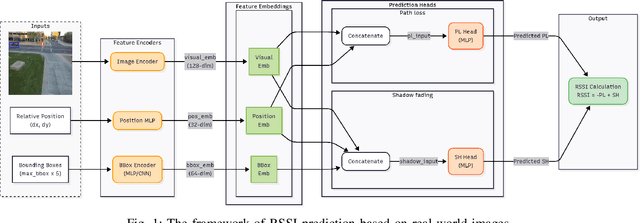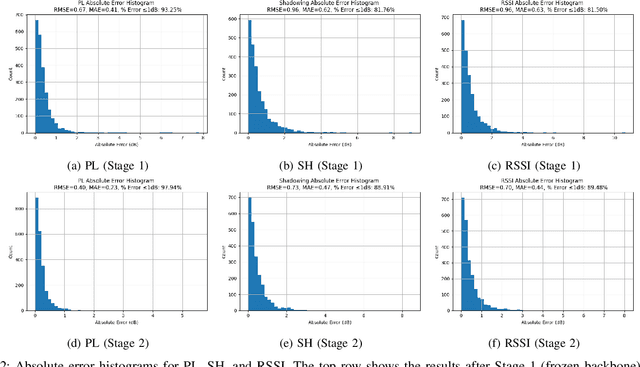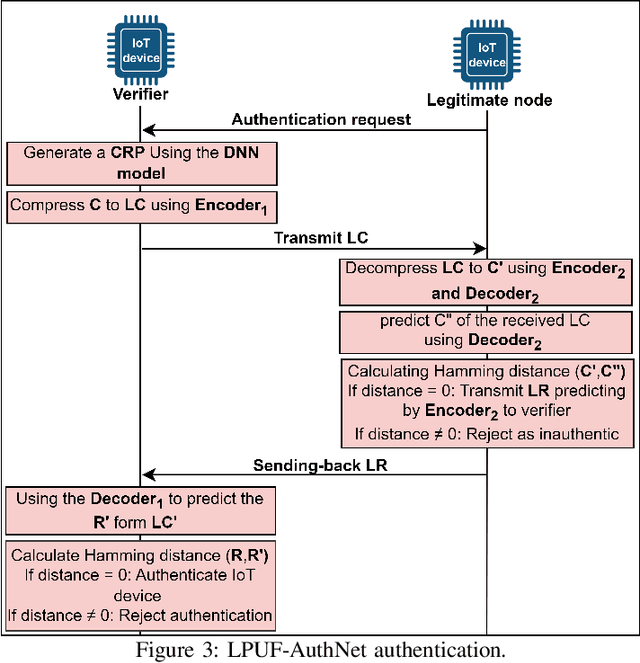Brahim Mefgouda
Reading Radio from Camera: Visually-Grounded, Lightweight, and Interpretable RSSI Prediction
Oct 29, 2025



Abstract:Accurate, real-time wireless signal prediction is essential for next-generation networks. However, existing vision-based frameworks often rely on computationally intensive models and are also sensitive to environmental interference. To overcome these limitations, we propose a novel, physics-guided and light-weighted framework that predicts the received signal strength indicator (RSSI) from camera images. By decomposing RSSI into its physically interpretable components, path loss and shadow fading, we significantly reduce the model's learning difficulty and exhibit interpretability. Our approach establishes a new state-of-the-art by demonstrating exceptional robustness to environmental interference, a critical flaw in prior work. Quantitatively, our model reduces the prediction root mean squared error (RMSE) by 50.3% under conventional conditions and still achieves an 11.5% lower RMSE than the previous benchmark's interference-eliminated results. This superior performance is achieved with a remarkably lightweight framework, utilizing a MobileNet-based model up to 19 times smaller than competing solutions. The combination of high accuracy, robustness to interference, and computational efficiency makes our framework highly suitable for real-time, on-device deployment in edge devices, paving the way for more intelligent and reliable wireless communication systems.
LPUF-AuthNet: A Lightweight PUF-Based IoT Authentication via Tandem Neural Networks and Split Learning
Oct 16, 2024



Abstract:By 2025, the internet of things (IoT) is projected to connect over 75 billion devices globally, fundamentally altering how we interact with our environments in both urban and rural settings. However, IoT device security remains challenging, particularly in the authentication process. Traditional cryptographic methods often struggle with the constraints of IoT devices, such as limited computational power and storage. This paper considers physical unclonable functions (PUFs) as robust security solutions, utilizing their inherent physical uniqueness to authenticate devices securely. However, traditional PUF systems are vulnerable to machine learning (ML) attacks and burdened by large datasets. Our proposed solution introduces a lightweight PUF mechanism, called LPUF-AuthNet, combining tandem neural networks (TNN) with a split learning (SL) paradigm. The proposed approach provides scalability, supports mutual authentication, and enhances security by resisting various types of attacks, paving the way for secure integration into future 6G technologies.
 Add to Chrome
Add to Chrome Add to Firefox
Add to Firefox Add to Edge
Add to Edge